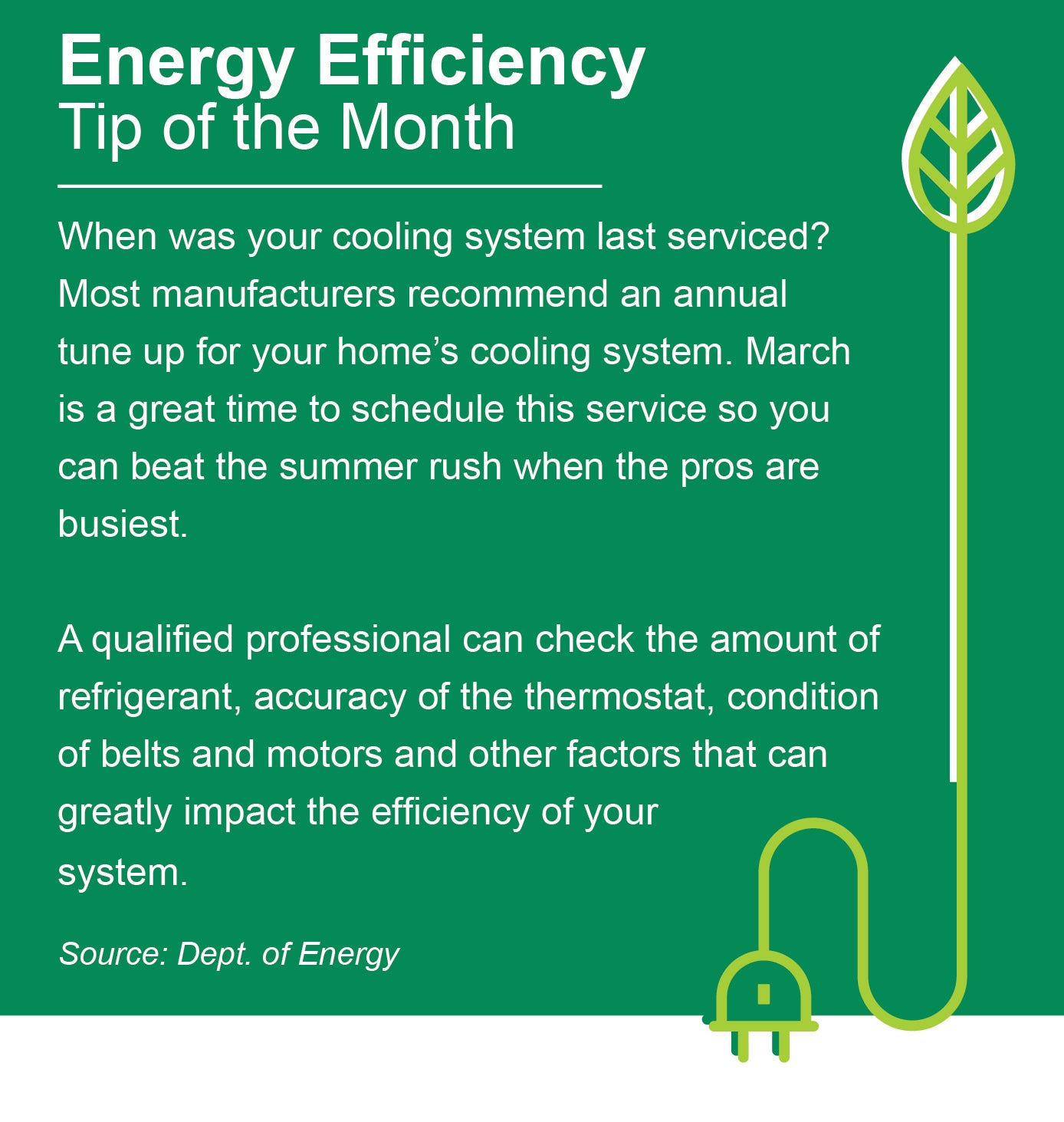To view the full print/pdf version of this issue of Currents, click here
For previous issues of Currents, visit our Currents Library
Planning Is The Best Medicine
By: Steve Sokolowski, Marketing Associate
Email: ssokolowski@sussexrec.com
Advancements in at-home medical equipment have empowered more people to live independently while treating medical issues that in the past would have reduced quality of life or even put that life in danger. Across the U.S., millions of people use at-home, electric-powered equipment to treat their medical needs. Whether they make use of ventilators, oxygen machines, nebulizers, electric wheelchairs, or other devices, these individuals rely on steady access to electricity to ensure their day-to-day well-being. Many people living within our own communities fit this category.
Sussex Rural Electric Cooperative strives to provide reliable electricity to all of its members. We perform consistent upgrades of our system to make it more resilient to outages. However, it is impossible for us to completely eliminate the possibility of power outages, especially during major storms. SREC is understanding of the difficulties members who rely on medical equipment face during outages. When power goes out, our crews get to work and attempt to restore power as quickly as possible. However, every outage is different and can present different circumstances for our crews.
If you are a members who uses electric-powered medical equipment in your home, or a family member or caretaker of such a member, we encourage you to have a plan in place for when power goes out. While it can be hard to tell how long it may take for power to be restored, knowing your options can help remedy some of the uncertainty that an outage creates. Here are the measures that SREC recommends that our members take so they are always ready for an outage:
1. Enroll in our Medical Alert Program
SREC’s medical alert program is an informational service for members who use electric-powered medical equipment in their homes. Whether your medical device is life-sustaining or for improving quality of life, we encourage you to sign up to receive advanced notice of planned outages that would affect your service. SREC performs planned outages so crews can safely conduct maintenance on our system. While we cannot predict when outages caused by weather, trees, or other factors may happen, we aim to always inform the members who are most vulnerable when left without power about any planned outages. Medical alert members receive a phone call in advance of a planned outage to provide them with enough time to make alternate accommodations if needed, and to share how long the planned outage will last. Those who qualify can visit sussexrec.com/medalert to enroll and stay in the know.
2. Look out for outage updates
Our online outage map, found at outages.sussexrec.com, provides a real-time look at all outages affecting our system. For the most large-scale outages, we offer regular updates via social media and our email list to keep members informed of our restoration progress. To stay up to date during these situations, you should sign up for our email service at sussexrec.com/email-alerts or keep an eye on our Facebook (@sussexrec) and Twitter (@SussexREC) pages.
3. Have a secondary source of power ready
The most effective thing you can do to keep your medical device powered on is to have a backup power source ready. A generator is a great investment to ensure your medical equipment is never left without power. A whole-house generator, like the Cummins generators offered by our subsidiary SREC Resources, will activate automatically when your power goes out. These are more expensive than portable generators, though SREC Resources does offer financing for their whole-house generators. Portable generators are much more affordable but take more effort to start. A transfer switch, such as the GenerLink, would help make this process easier by allowing you or a caretaker to simply plug the portable generator directly into the switch behind your electric meter.
4. Make use of a support network
If you are a member who requires use of medical equipment at home, braving an outage situation alone can be scary and dangerous. If possible, we encourage you to seek aid from others – whether they’re family, friends, caretakers, or neighbors – who may be able to help you until our crews restore power. If these individuals have a generator or know of an alternate location they can bring you, it can make all the difference. For anyone reading this who does not have these medical needs, but knows someone who does, offering your own aid to them during an outage can be critical to ensuring their well-being until power is restored.
5. Enroll in NJ Register Ready
NJ Register Ready is a state-sponsored program that allows New Jersey residents with disabilities or access/functional needs to receive help in the event of a disaster. Residents can provide information that allows emergency responders to better plan to serve them during an emergency. This can be crucial during a major storm, when travelling to another location that has power might not be a safe option. Please note that all information provided is stored securely and only used for emergency planning response. You can sign up for this program at registerready.nj.gov or by calling 2-1-1.
I hope that anyone reading this finds these measures helpful in putting together a plan for a major outage. Living with a persistent medical issue is hard enough without factoring in the uncertainty that comes with outages affecting electric-powered equipment. But with the proper plan in place, an outage can go from a dire situation to something that you’re well-prepared to handle.




